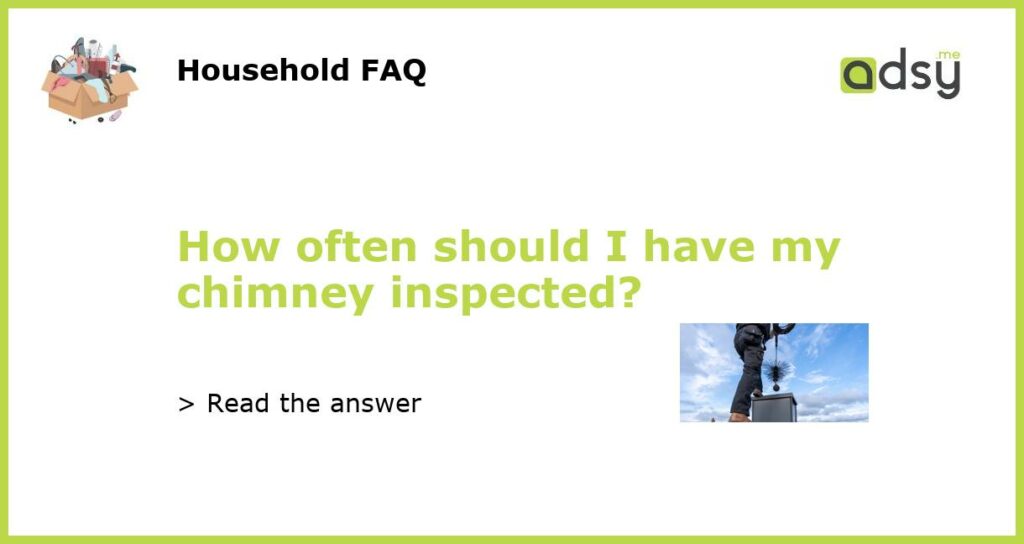The importance of chimney inspections
Regular chimney inspections are crucial for maintaining the safety and efficiency of your fireplace or heating system. Ignoring chimney maintenance can lead to serious problems, including fire hazards and carbon monoxide leaks. Therefore, it is essential to understand how often you should have your chimney inspected to ensure the well-being of your home and family.
Annual chimney inspections
Experts recommend having your chimney inspected at least once a year. This annual inspection is necessary to identify any potential issues that may have developed over time. Even if your chimney appears to be functioning properly, there could still be underlying problems that only a professional chimney sweep can detect. Regular inspections can prevent major repairs and save you from expensive and dangerous situations.
Frequency for heavy use
If you use your fireplace or heating system extensively, such as during the winter months, you may need to schedule chimney inspections more frequently. The National Fire Protection Association (NFPA) recommends additional inspections if you burn a cord of wood or more in a season, or if you use your fireplace or wood-burning stove as the primary source of heat.
New installations and changes
It is important to have a professional inspection when installing a new chimney or making any significant changes to your existing one. Whether you are adding a new appliance, altering the fuel source, or extending the height of the chimney, an inspection is essential to ensure proper installation and safety compliance. These inspections should be performed before and after any changes to ensure optimal function and compliance with building codes.
Signs you may need an immediate inspection
While annual or seasonal inspections are recommended, certain signs indicate the need for immediate chimney inspection. If you notice any of the following, contact a professional chimney sweep promptly:
- Unusual odors: Foul or strong smells emanating from your fireplace or chimney could indicate a blockage, animal infestation, or other issue. These smells should not be ignored, as they can be indicative of a more serious problem.
- Excessive smoke: If you experience excessive smoke when using your fireplace, it could be a sign of an obstruction or improper ventilation. Proper chimney maintenance can resolve this issue and keep your home safe from smoke damage.
- Cracked or damaged chimney: It is important to inspect your chimney regularly for cracks, chips, or other signs of damage. If you notice any deterioration, it is recommended to have an inspection performed as soon as possible to prevent further damage or safety concerns.
- Persistent creosote buildup: Creosote is a byproduct of burning wood and can accumulate inside your chimney. If you notice a significant buildup, it may be time for a professional cleaning and inspection to prevent chimney fires.
- Sudden decrease in draft: If you notice a sudden decrease in draft or difficulty in starting and maintaining a fire, it could be a sign of an underlying issue. An inspection can help identify the cause and ensure your chimney is functioning properly.
In conclusion, annual chimney inspections are highly recommended to identify and address any potential issues before they escalate. However, additional inspections may be necessary depending on your level of usage, any changes to your chimney system, or the presence of any warning signs. Prioritizing regular chimney inspections will not only keep your chimney in optimal condition but also provide peace of mind for the safety of your home and loved ones.

